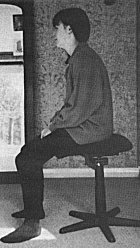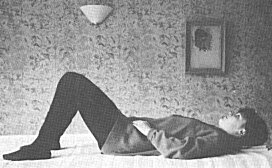The Alexander Technique


I have just finished reading "The Working Singer's Handbook" by Roma Waterman.
With apologies to Roma, I found the concept of the book great, and she seems very enthusiastic, but overall the book left me unimpressed.
I did find the chapter on posture very helpful and enlightening, however, and Roma has made me aware of the Alexander Technique.
Matthias Alexander 1869-1955 was a Shakespearian actor who was prone to voice failure during performance. There was no medical basis for his voice problems, so he studied himself in the mirror.
He discovered that he pulled his head back and down as he spoke, causing restriction in his breathing, the larynx was depressed and there was consequent tension in his voice muscles. To quote Matthias: “We tend to pull our head down and back into our neck (each individual in his own characteristic way) initiating a downward pressure, a collapsing influence on the rest of the spine and the whole body structure connected to it. For most of us, this pulling down is so habitual that it does not feel wrong and usually becomes even stronger when we ‘do’ something. In other words, we misuse ourselves most of the time, but particularly badly during activity.” (Alexander, The Use of the Self, p. 43).
Alexander had seen that the head/neck relationship not only governed the efficiency of his vocal production but influenced the overall pattern of muscular and postural use in his whole body.
To begin to apply his method beneficially, when you sing, be careful to have a good erect posture, neither leaning backwards or forwards, especially keeping the bodyline straight from the hips up, including the neck. Neither tilt your head forward nor back, and if you are aware of good breathing technique, you will have a good, open relaxed pipe to and from your voice box.
For the singing guitarist, use a boom on your mike stand, and avoid shoulder hunches.
If you watch any of the Cream video clips on my posts, watch Jack Bruce, who is quite good in his posture. Eric Clapton, on the other hand, either leans in to the mike, or tilts his head back when he intends to back off from the mike on the louder passages. Jack has always been a better and stronger vocalist than Eric!
If you are a drummer, the ideal is to wear your mike, because of the probability of strong and frequent body movement when you play.
But above all, if you are a serious singer and you can afford it, find a singing teacher who is aware of the Alexander Technique, and work on this very important aspect of your craft.
When you sing, your breathing should fill all of your lungs, which means your diaphragm muscles should be strong, and should push out! (Which is why opera singers, male or female, always look heavy around the waist!)
Your breath should come out smoothly, and gradually, in other words it should be controlled.
Which brings me to Dubyoo, (not Dubya, the mongrel president).

Lie on your back, put a phone book on your diaphragm (just under your rib cage), and take a deep breath in. You should be able to lift the Mother at least two inches, if your diaphragm is strong, it should be three to four inches. Pitch your voice to a note that lies comfortably in your midrange, preferably your natural speaking pitch, and let the breath out gradually while repeating "Double you, double you, " til you run out of breath. You should at least get to a minute! An early hurdle to overcome is the tongue twister when you are saying "double you" but hear "you double".
This exercise will strengthen your voice and increase your breath control.
To increase your vocal range (to its natural limits):
In broad terms, our voices have three distinct registers. (Johnny Cash lived in the bottom register, with an occasional foray into the bottom of the middle.)
Warm your voice up first, then: Start the dubyoos on your mid note, say "double you" three times, go as high as you can for three, as low as you can for three, back to the middle, til you run out of breath. I doubt if you will last as long as the straight dubyoos!
A good session would be five of each variation, unless your voice fatigues. If not, try ten of each.
If yes, think about Alexander!



0 Comments:
Post a Comment
<< Home